This is a list of the fantasy authors who I personally consider to be the best of all time. If you are looking for incredible fantasy novels which will blow your mind, try these authors first.
I do not make these recommendations lightly. I have personally read most, if not all, of the major works by these fantasy authors, and I vouch for them. There are many other authors that I have read who do not appear on this list. Many other authors have produced enjoyable books — but they may have flaws which lead to them being a cut below the best.
Some of the younger or less established authors who didn’t make this list appear on my list of the best up and coming science fiction and fantasy authors.
For each author, I have provided a brief overview of their major works which have earned them a spot on this list, and also given a recommendation for which of their books readers should start with. Note that this is not a list for children or young readers. With one exception, the titles on this list are for readers in their late teens and above (adults). Many of the books are not suitable for readers younger than 18 years.
This list is the best of the best, and I commend these authors and their books to you. You will not be disappointed.
 | J. R. R. Tolkien The acknowledged king of fantasy, Tolkien singlehandedly brought the genre to mainstream popularity with his Lord of the Rings saga. Wizards, elves, dwarves, dragons, magic swords and a dark tower ruled by an evil lord; all of these concepts had their modern origins in Tolkiens' work. If you have not read Tolkien, you have not read fantasy. If you want to do things in the right order, read the short novel The Hobbit first and then the Lord of the Rings trilogy. However, it’s OK to do it the other way around as well. Start with: The Hobbit |
 | Robert Jordan The Wheel of Time builds on many fantasy concepts introduced by Tolkien, but creates a much larger world incorporating hundreds of well-fleshed out characters backed by an epic plot which forces those characters to constantly grow and evolve. When you throw in a sophisticated magic system, a distinct sense of honour and a well-honed sense of humour, you have one of the best fantasy series of all time. Many count it the best. The Wheel of TIme is a must-read series that contains every possible idea that a fantasy series could contain. Just don’t get bogged down from about book six or seven (especially for younger readers, who may not understand all of the adult complexities of those books), and remember that the last three books are a bit off in some places as they were penned by up and comer Brandon Sanderson after Jordan passed away in late 2007. Bear these caveats in mind, and you’ll be set for one of the greatest fantasy reads of all time. I have personally read The Wheel of Time through perhaps 6-7 times. Start with: The Eye of the World |
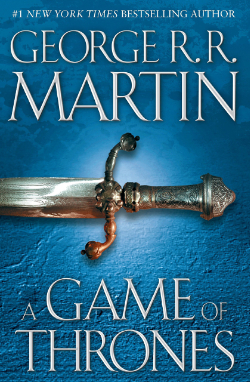 | George R. R. Martin George R. R. Martin is best known for his epic series A Song of Ice and Fire, which has recently exploded in popularity due to the US TV adaptation Game of Thrones. It’s gritty and violent and sexy and we love it. It’s also not yet finished — so be warned that you’ll likely be waiting a few years for the conclusion. Perhaps the biggest difference between Martin's works and the other members of the other 'big three', Tolkien and Jordan, is that Martin's more of a realist. If you subtract the light fantasy elements which are infused throughout his books, you'll find a hard-nosed history under the covers based loosely on many real events from Europe's bloody medieval past. Sometimes 'good characters' in A Song of Ice and Fire unexpectedly die ... and you find yourself rooting for the bad guys when they find their own personal redemption. Just like in real life. Start with: A Game of Thrones |
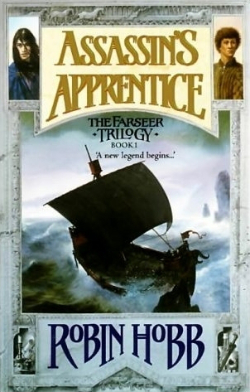 | Robin Hobb: Hobb’s masterwork is the long, long series The Realm of the Elderlings, which contains many internal trilogies and is still being completed. This series is compulsory epic fantasy reading and goes through so many twists and turns and revelations that your brain will be a little bent by the end of it. The first nine books are the best, although Hobb has recently rejuvenated the series in an admirable manner, and we’re hooked again on the new entries. There's plenty of magic, swords, medieval politics and yes, dragons to be found here. If you like Hobb’s style, the Soldier Son trilogy is also not terrible. Start with: Assassin's Apprentice |
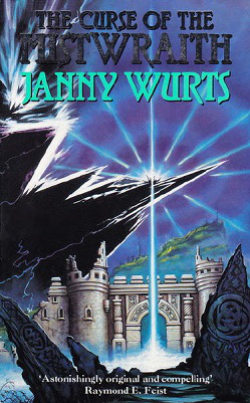 | Janny Wurts Wurts is best known for her easy reading Empire Trilogy, co-authored with Raymond E. Feist and set in Feist’s Midkemia/Kelewan universe. However, her masterwork is The Wars of Light and Shadow epic series, which is almost finished. It can be wordy at times, and the first book, The Curse of the Mistwraith, is a bit of a slog, but it’s worth persevering for one of the best long reads in the genre. Often compared with Robin Hobb. Start with: Curse of the Mistwraith |
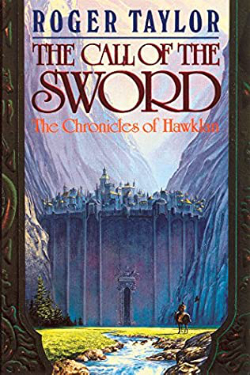 | Roger Taylor A little-known British author, Taylor’s Chronicles of Hawklan is an often overlooked gem series in the fantasy genre. If you can find it, pick up a copy of the first four books. Decide if you want to keep reading Taylor after that. This is truly an author with a great deal of heart. And of course all of the usual fantasy tropes are present ... the hero, the sword, the dark lord and the hilarious offsiders. Start with: Call of the Sword |
 | Raymond E. Feist Feist's Magician is considered a must-read of the fantasy genre. Although the title suggests it focused on wizardry, there is plenty of swordplay to keep the more bloodthirsty of you interested. There are countless follow-up novels; how deep you get into Feist's universe is up to you. I usually recommend reading Magician, Silverthorn and A Darkness at Sethanon, followed by the three 'Empire' books Feist co-authored with Janny Wurts, all of which are excellent. Then keep going as long as you want -- there are about a dozen more books. I gave up after Shards of a Broken Crown, but I'm hoping to return to Feist's world of Midkemia one day. Start with: Magician |
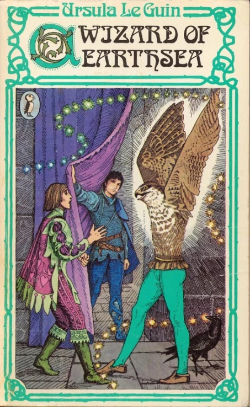 | Ursula K. Le Guin Le Guin makes this list courtesy of her treasured Earthsea coming of age series, which is required reading for any fantasy fan. It's very easy to get into, especially for teenagers, but Earthsea is also imbued with a deeper wisdom that ensures readers will never forget the series. However, Le Guin’s true masterwork is the dystopian science fiction novel The Dispossessed, which is a meditation on the nature of the diametrically opposed anarchist and capitalist social democracy political theories. The gender-bending novel The Left Hand of Darkness is also superb. Due to this, Le Guin is one of the only fantasy authors on this list to also appear on my similar list of the best science fiction authors. Start with: A Wizard of Earthsea |
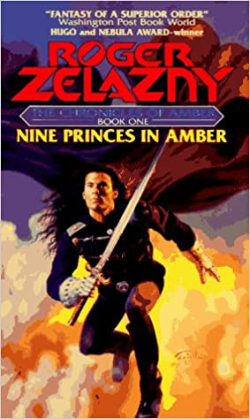 | Roger Zelazny A science fiction master with a heap of great stand-alone sci-fi novels to his name, we nonetheless consider Zelazny’s swashbuckling Chronicles of Amber fantasy series to be his best and most consistent work. It’s easy to get into but very satisfying. Lots of roguish humour, a satisfying magic system and several gradually unfolding world mysteries rapidly draw the reader in. Start with: Nine Princes in Amber |
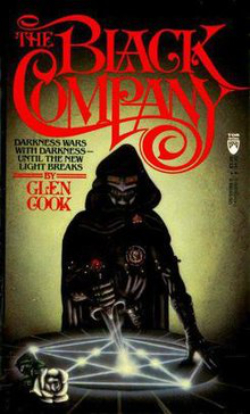 | Glen Cook Cook's The Black Company is not a classic 'good guy goes on a long journey to defeat evil lord' tale. It turned the fantasy genre on its head by telling the tale of a bunch of nefarious mercenaries who find themselves working for -- and often directly aiding -- some significant forces of evil. This may initially turn some readers off, but those who stick with The Black Company will eventually start to understand that Cook is painting morally complex characters on one of the biggest canvases that fantasy literature has to offer. The Black Company is an understated and often overlooked masterpiece. Start with: The Black Company |
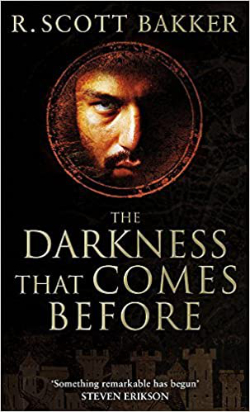 | R. Scott Bakker Bakker is best known for his epic and highly philosophical series The Second Apocalypse. It turns into a slog after the first trilogy, but the first three books are superb. They’re very much a meditation on the messiah complex which is found in Judeo-Christian-Islamic religions, and how men and civilisations can be manipulated. However, as always with fantasy, there’s also an ultimate evil lurking in the background. Definitely only for adult readers -- prepare to be disturbed. Start with: The Darkness That Comes Before |
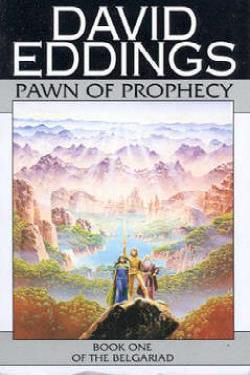 | David Eddings Eddings' Belgariad series and its follow-ups is widely considered a bit lighter than some of the more serious series in the fantasy genre, but it's still a great read in the epic fantasy style, with a classic 'hero's journey' plot, appealing characters and a solid dose of humour. A great intro to the genre, especially for teenage readers. He's also got a number of separate series that were written after The Belgariad that are worth checking out. Start with: Pawn of Prophecy |
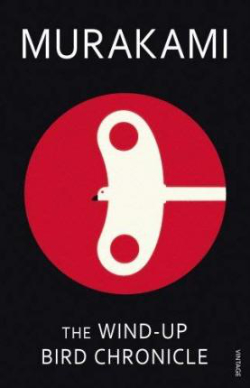 | Haruki Murakami Not viewed as a traditional fantasy master, this Japanese author nonetheless includes fantasy elements in all his books. They’re all complex interweavings of inner and outer worlds that demonstrate the sheer aloneness and surreality of human existence. The incredible long novel The Wind-Up Bird Chronicle is Murakami’s masterwork, but I usually recommend fantasy fans to start with the more approachable Hard-Boiled Wonderland and the End of the World. Start with: Hard-Boiled Wonderland and the End of the World |
 | Steven Erikson Erikson's epic Malazan Book of the Fallen series is one of the most complex and sophisticated fantasy series in existence, dealing with the whole sweep of human endeavour, with all of its political and intellectual nuances. Because of this, it's also one of the most acclaimed. Just be warned that the first book in the series, Gardens of the Moon, is quite inaccessible. But if you push through, the series opens up into one of fantasy's must-reads. Start with: Gardens of the Moon |
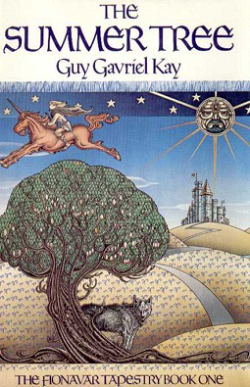 | Guy Gavriel Kay Kay’s short trilogy The Fionavar Tapestry is very solid reading in the Tolkien tradition, spiced with a solid dose of youthful vigour and counterbalanced with the equivalent youthful angst and tragedy. If you like it, there’s plenty of more books available. In his books after this trilogy, Kay has been focusing on alternative history. And he’s very good at it. Start with: The Summer Tree |
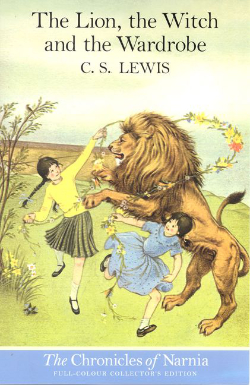 | C. S. Lewis Many of us started our fantasy journey as older children with the entrancing light fantasy series The Chronicles of Narnia. But the series is not just for children and develops into quite dark territory as it progresses. It also never shies away from adult themes or panders to the perceived immaturity of childish concepts. For this reason, the series is impossible to overlook as one of the best fantasy series of all time. Start with: The Lion, the Witch and the Wardrobe |
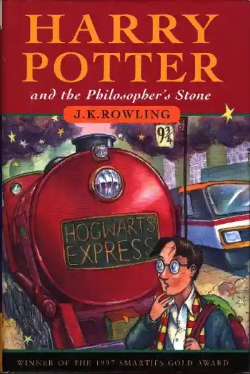 | J. K. Rowling Rowling’s genius is the seamless integration of the whimsical and charming English boarding school culture found in many of fellow British author Enid Blyton’s books with what are initially light fantasy elements. Rowling’s critics will say her books are derivative and that her magic systems don’t have consistent enough concrete rules. And it’s true that one doesn’t have to look too hard to see a lot of Gandalf in Professor Dumbledore. It’s also easy to sigh when one of the characters magically waves a problem away with a vaguely concocted spell. But none of this is to diminish Rowling’s accomplishment. Harry Potter's story is spellbinding and its magical characters all too humanly flawed. This is a fantasy series that people of all ages will love. Start with: Harry Potter and the Philosopher’s Stone |
Think this list is missing something? Drop me a line and argue your case.
